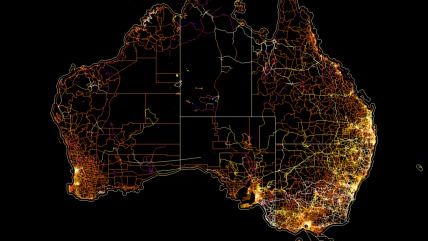Free Speech at Risk in Australia, Thanks to Terrible New Counter-Terrorism Bill

Free speech advocates from across Australia's political spectrum have raised concerns about new counter-terrorism legislation passed by the Australian senate this week.
The legislation, which received bipartisan support from Australia's two main political parties, grants new and increased powers to Australia's intelligence agencies.
Among these new powers is the ability of the Australian Secret Intelligence Organisation (ASIO) to access a limitless number of computers on a particular computer network, all under a single warrant.
As The Sydney Morning Herald has reported, this could potentially allow ASIO to monitor the entire Internet.
Recent experience in the United States has shown clear potential for abuse when the National Security Agency (NSA) and other intelligence agencies are given wide-ranging surveillance powers. The problem could be even more dire in Australia, where the warrants required for surveillance are granted by the director-general of ASIO, or his deputy, rather than a judge or magistrate.
This means that a system of mass surveillance in Australia would require less judicial oversight than the NSA's now infamous metadata program.
The legislation was opposed by a motley collection of senators from across Australia's political spectrum.
Sen. Scott Ludlum, of the left wing environmentalist party, the Greens, was particularly vocal about his opposition to a new offence for the unauthorized disclosure of information relating to a special intelligence operation.
As the Guardian Australia reports:
There is no limitation on whom this provision can be used against, with media organisations and lawyers raising serious concerns about the potential for a journalists to be jailed and a "chilling effect" on reporting about intelligence matters.
The legislation was also opposed by Australia's first senator elected on a consistent libertarian platform, the Liberal Democrats' David Leyonhjelm, who warned against the loss of freedom, in what he called a "moral panic" about the threat of terrorism.
"I think it is very important that we absolutely maintain our rights and freedoms as individuals and deal with the terrorists without compromising those rights."…
"The idea [in this legislation] is you commit an offence unless you can prove you're innocent, it just goes against all of our rights and freedoms as a free society.''
The legislation is set to come before the Australian House of Representatives next week, where it is all but guaranteed to pass.


Show Comments (11)